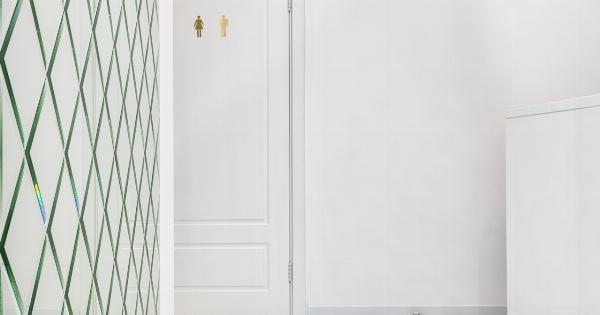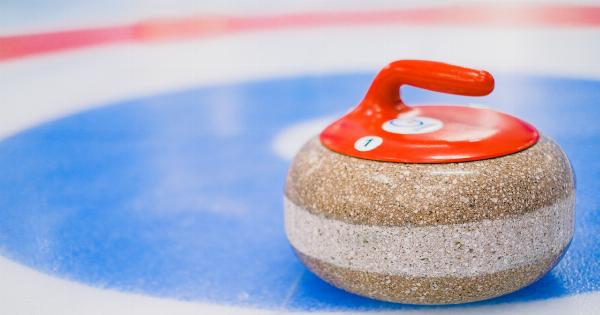If you have ever experienced a blocked nose, you know how uncomfortable and frustrating it can be.
Whether it’s due to allergies, a cold, or sinus congestion, a blocked nose can make it difficult to breathe, sleep, and go about your day-to-day activities. Fortunately, there are several easy and effective home remedies that can help clear your blocked nose and provide relief. In this article, we will explore some of these remedies and how they can help you breathe freely again.
1. Steam Inhalation
Steam inhalation is a simple and effective way to clear a blocked nose. It helps to open up the nasal passages, reduce congestion, and provide instant relief. To do steam inhalation:.
– Boil water in a pot or kettle.
– Carefully pour the hot water into a large bowl.
– Place a towel over your head, lean over the bowl, and inhale the steam for about 10 minutes.
– Be cautious and maintain a safe distance to avoid any burns.
2. Saline Nasal Rinse
A saline nasal rinse can help clear your blocked nose by flushing out excess mucus and reducing inflammation. Here’s how to do it:.
– Mix a quarter teaspoon of salt and a quarter teaspoon of baking soda in 8 ounces of warm water.
– Fill a neti pot or a bulb syringe with the saline solution.
– Lean over a sink and tilt your head to one side.
– Gently pour the solution into one nostril and let it drain out through the other.
– Repeat on the other side.
3. Warm Compress
A warm compress can help relieve nasal congestion and soothe inflammation. Here’s how to use a warm compress for a blocked nose:.
– Soak a clean towel in warm water.
– Wring out the excess water.
– Fold the towel and place it over your nose and forehead.
– Leave it on for 10-15 minutes.
– Repeat as needed to find relief.
4. Stay Hydrated
Drinking plenty of fluids is essential when you have a blocked nose. Staying hydrated helps to thin the mucus in your nasal passages and makes it easier to clear. It also helps to keep your throat moist and alleviate symptoms like a sore throat.
Aim to drink at least 8 glasses of water a day and increase your fluid intake when you have a blocked nose.
5. Use a Humidifier
Using a humidifier in your bedroom can help add moisture to the air and alleviate nasal congestion. Dry air can worsen your symptoms and make it harder to breathe.
A humidifier creates a more comfortable environment by adding moisture to the air, allowing your nasal passages to stay hydrated and clear.
6. Elevate Your Head While Sleeping
When you lie flat, mucus and fluid can accumulate in your nasal passages, leading to a blocked nose. Elevating your head while sleeping can help drain the mucus and reduce congestion.
You can try using an extra pillow or a wedge pillow to elevate your head and find relief from a blocked nose.
7. Nasal Strips
Nasal strips are adhesive strips that you can apply on the outside of your nose. They work by gently pulling the nostrils apart, opening up the nasal passages, and improving airflow.
Nasal strips are easy to use and can provide instant relief from a blocked nose. They are especially helpful during sleep when nasal congestion tends to worsen.
8. Avoid Allergens and Irritants
If your blocked nose is due to allergies or irritants, it’s important to identify and avoid them. Common allergens include dust mites, pet dander, pollen, and certain foods.
Irritants like cigarette smoke, strong perfumes, and chemicals can also trigger a blocked nose. Minimize your exposure to these triggers to prevent and reduce nasal congestion.
9. Use Nasal Decongestant Sprays with Caution
Nasal decongestant sprays can provide quick relief from a blocked nose by shrinking the blood vessels in the nasal passages. However, these sprays should be used with caution and only for a short duration.
Overuse can lead to a condition called rebound congestion, where the nasal passages become even more blocked when the effects of the spray wear off. Follow the instructions on the package and consult a healthcare professional if needed.
10. Try Over-the-Counter Remedies
There are several over-the-counter remedies available that can help clear a blocked nose. Nasal saline sprays, nasal decongestant tablets, and antihistamines are some examples. These remedies can provide temporary relief and help manage your symptoms.
However, it’s important to read and follow the instructions carefully and consult a healthcare professional if you have any underlying medical conditions or if your symptoms persist or worsen.
Conclusion
A blocked nose can be a nuisance, but with these easy and effective remedies, you can find relief and breathe freely again.
Steam inhalation, saline nasal rinses, warm compresses, and staying hydrated are simple yet powerful ways to clear your nasal passages. Using a humidifier, elevating your head while sleeping, and applying nasal strips can also provide relief.
Additionally, it’s important to identify and avoid allergens and irritants, use nasal decongestant sprays with caution, and consider over-the-counter remedies when necessary. Remember, if your symptoms persist or worsen, it’s always a good idea to consult a healthcare professional for further evaluation and guidance.






























